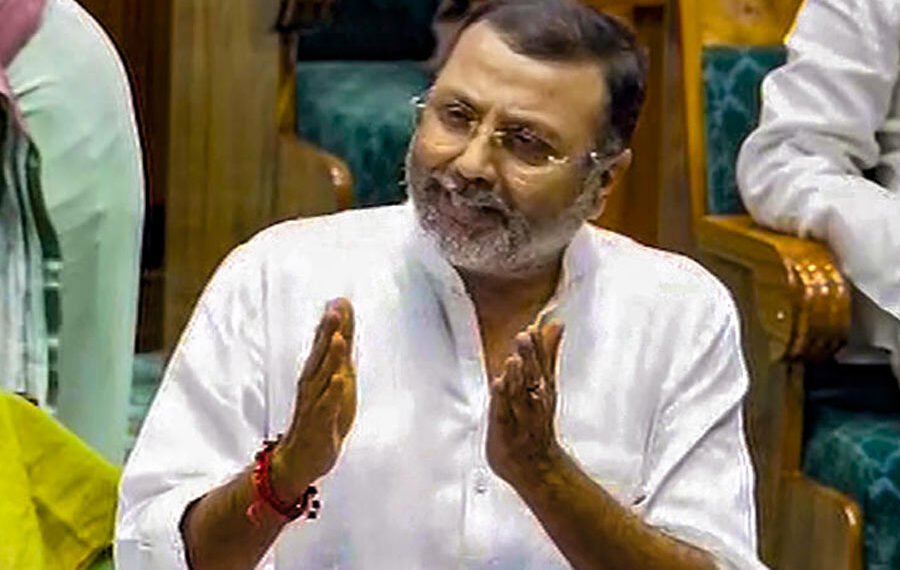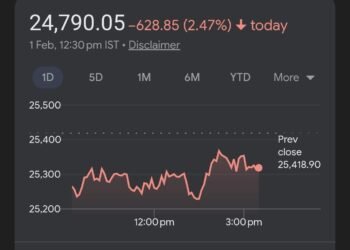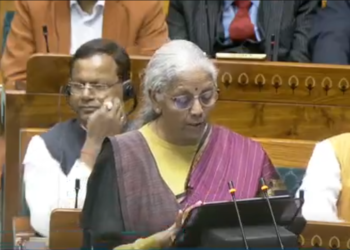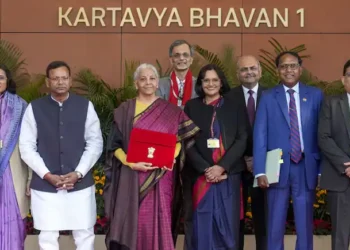In an unprecedented attack on judiciary, BJP MP Nishikant Dubey and Vice President Jagdeep Dhankhar accuse the Supreme Court of overreach, triggering a fresh constitutional face-off.
BY PC Bureau
The already fraught relationship between the Centre and the Supreme Court took a sharper turn this week, as BJP MP Nishikant Dubey launched a scathing attack on the judiciary, using language that signaled an intensifying clash between the executive and the judiciary.
Dubey accused the Supreme Court of steering the country toward “anarchy” and even alleged it was “inciting religious wars”—a dramatic escalation in rhetoric with serious implications for the balance of power in India’s democracy.
These reactions come in the wake of a significant Supreme Court judgment in a Tamil Nadu case, where the court ruled that Governor RN Ravi’s decision to withhold assent to ten state bills was “illegal” and “arbitrary.” The court further stipulated ah deadline for both the President and Governors to act on bills that have been re-passed by the legislature. It also suggested that the President refer constitutionally complex bills to the court for guidance.
“Who are you to give directions to the appointing authority?” asked Dubey, questioning the judiciary’s role in relation to the President, Parliament, and the appointment of the Chief Justice.
“In which law is it written that the President must decide within three months? This is an attempt to push the country toward anarchy” he said.
Doubling down, Dubey made even more provocative claims: “The Supreme Court is responsible for inciting religious wars in the country. It is going beyond its limits. If everything must be decided by the Supreme Court, why should Parliament and State Assemblies exist?”
ALSO READ: Kuki-Zo Women Protest Meitei Pilgrimage in Thangjing Hills
Dubey’s comments come close on the heels of similarly critical statements made by Vice President Jagdeep Dhankhar just three days ago. Speaking at a public forum, the Vice President said:
“Article 142 has become a nuclear missile against democratic forces, and it is available to the judiciary 24×7.”
“Can the judiciary assume the role of the legislature? If it does, then democracy is in danger. There is a disturbing trend where judgments are bordering on legislation, and the line between interpretation and creation of law is being blurred.”
These comments reflect a growing unease within sections of the ruling establishment over what they see as judicial overreach. At the same time, many legal scholars argue that the judiciary is performing its constitutional role as the final arbiter of rights and institutional conduct, particularly at a time when the lines between the executive and legislature have become increasingly blurred.
ALSO READ: Special Story: Timber Smuggling in Manipur: Assam Rifles Crackdown Exposes Deep-Rooted Illicit Trade













